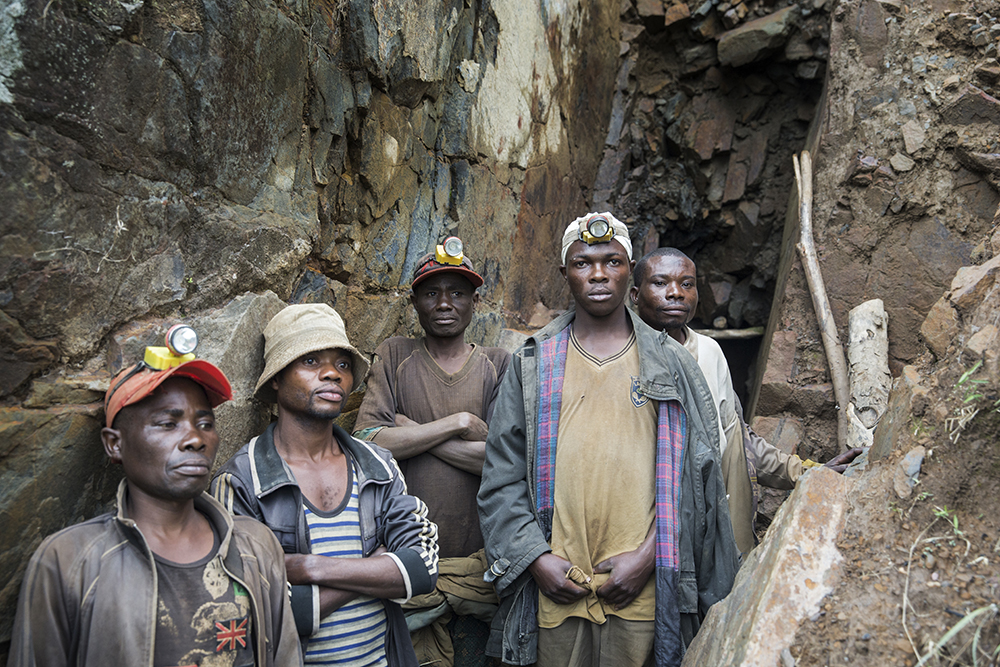Many mines and oil installations have been modernised and have become safe workplaces, where machines now perform the most hazardous tasks. In many countries, however, mines remain the deadliest type of workplace, where collapses, landslides, drowning, and pulmonary illnesses claim thousands of miners’ lives every year. In many cases, informal/small-scale mines represent the most dangerous form of mining because protection and safety equipment are usually non-existent. Trade unions are seldom represented at small-scale and informal mines. Dialogue with workers associations here is often non-existent, which even further increases the vulnerability of the miners and their lack of influence over their working conditions.
The extractive industries are overwhelmingly male-dominated workplaces. Women who work in mining and extraction can be particularly vulnerable, especially for sexual abuse.

Miners in front of the entrance to a cassiterite mine in Congo Kinshasa. There is a severe risk of collapse at these types of mine, which typically have narrow and deep shafts. Photo: Jeppe Schilder.
Some examples
- In January 2019, a tailings dam collapsed at an iron ore mine in Brumadinho in south east Brazil causing the deaths of more than 250 people. A vast river of mud containing toxic mining waste flooded the area and drowned people, buildings, roads and bridges. It was the deadliest mining accident in Brazil’s history. The Brazilian company Vale, which operates the mine, is the world’s largest producer of iron ore. Internal documents show that Vale knew that the dam was flawed. In 2015, one of the company’s tailings dams at another mine in the same state collapsed resulting in the deaths of 19 people.
- In February 2019, a landslide hit an illegal gold mine on the island of Sulawesi in Indonesia. Wooden structures in the mine collapsed due to loose earth and the large number of mine shafts, which resulted in many people being buried in debris. At least eight people died, and many other miners were reported missing. The area is inaccessible and located in steep terrain, which complicated rescue efforts. Unofficial, unlicensed mines are common in Indonesia, and safety standards are often poor.
- In March 2019, a leaking oil pipeline caused a major explosion in the Niger Delta in southern Nigeria. More than 50 people went missing after the explosion and the accident caused widespread oil spills throughout the delta. The Niger Delta is heavily polluted by repeated oil spills. According to Nigerian oil companies, pipelines are destroyed, often with the aim of stealing oil or for reasons of sabotage. Fatal accidents caused by leaking oil pipelines are common in Nigeria, which is Africa’s largest oil producer. According to Amnesty, the large international oil companies fail to take sufficient steps to prevent oil spills or sabotage, and they react too slowly when pipelines are leaking.

